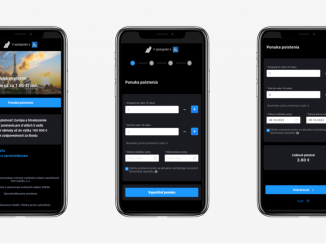
Living in a free market society, you’ll inevitably find yourself facing the significant decision of purchasing insurance. Whether it pertains to health, automobiles, property, or life, the necessity of obtaining insurance coverage becomes increasingly apparent and almost unavoidable at some juncture in your life. The complexities of modern living often bring about unforeseen events and potential risks that insurance is designed to mitigate.
Regardless of your employment status, whether you are a full-time employee, a freelancer, or even between jobs, insurance often becomes either a mandatory or a critically important option. Many jurisdictions require certain types of insurance, such as auto insurance if you own a car. Similarly, health insurance may be mandated or highly recommended to cover medical expenses and safeguard your financial well-being.
Understanding the pivotal role that insurance plays in protecting one’s financial security and peace of mind, it is crucial to approach this decision with careful consideration. With this in mind, I’ve put together a comprehensive list of 10 crucial aspects to think about when you’re on the verge of purchasing insurance. These considerations will help you make a well-informed decision, tailored to your personal needs and lifestyle, ensuring that you and your assets are adequately protected.
1. Avoid Insuring What You Can Afford to Replace
A fundamental rule in insurance is to never buy coverage for things you can easily afford to replace. This principle often gets overshadowed by aggressive marketing tactics and well-meaning advice from friends and family.
For instance, insuring small electronics like your phone or television might seem prudent, but these are consumables. Their replacement costs are generally manageable, and the premiums you pay over time could end up costing more than the item itself. Instead, insurance should be reserved for substantial assets—such as a car, home, or business—that would cause significant financial strain if lost.
2. Comply with Statutory Insurance Requirements
Some insurance types are legally mandated, both for individuals and companies. Understanding and adhering to these requirements is crucial because non-compliance can lead to severe penalties, often exceeding the cost of the insurance itself.
Life Insurance for Government Employees
For instance, in Nigeria, life insurance is compulsory for government employees under Section 9, Subsection 3 of the Labour Act. This policy ensures that civil servants and military personnel are covered in the event of their death. If you are a government worker, it’s important to confirm that your employer is contributing to your life insurance policy. You should also know the value of the policy and who the beneficiaries are. If you find the coverage insufficient, you have the option to supplement it with additional contributions.
Employee Compensation
Another critical insurance mandated by law is under the Employee Compensation Act. This requires employers to contribute 1% of their payroll toward a fund that compensates employees for workplace injuries, mental stress, occupational hazards, and even death. This coverage is valid as long as you are employed, providing essential financial protection for workers.
Motor Third-Party Insurance
In the realm of motor insurance, third-party coverage is mandatory for all vehicle owners. This policy protects against liabilities arising from damage caused to other vehicles in the event of an accident. If you own an old or inexpensive car, third-party insurance may suffice. However, if your vehicle is valuable, comprehensive insurance—typically costing no more than 5% of the car’s value—might be a wiser investment to cover a broader range of risks.
3. Get Life Insurance If You Have Dependents
Life insurance is a must if you have loved ones who rely on you financially. This type of insurance ensures that your dependents are taken care of in the event of your untimely death. However, if you are single with no dependents, or if your spouse is financially secure, purchasing life insurance may not be necessary.
The primary purpose of life insurance is to prevent financial hardship for those left behind. If your death would cause financial distress for your family, then life insurance becomes an essential part of your financial planning.
4. Health Insurance: A Cost-Effective Shield
Health insurance can be a financial lifesaver, especially in a country like Nigeria, where illnesses such as malaria, typhoid, and other common ailments can strike when you least expect them. For as little as N100,000 per year, you can purchase health insurance for a family of four, covering these common illnesses. This minimal investment can save you significant amounts in medical expenses and provide peace of mind knowing that your health needs are covered.
5. Insure Only What You Have a Financial Interest In
According to Section 56, Subsection 2 of the Insurance Act, you can only insure an event, asset, or person in which you have a financial or beneficial interest. This means you cannot take out insurance for an event or asset that doesn’t impact you financially.
For example, you can insure a wedding or a show if you have a financial stake in the event. However, if you have no beneficial interest, you won’t be able to make a claim if something goes wrong.
6. Legal Limitations on Life Insurance
It’s important to note that you can’t legally purchase a life insurance policy for someone who isn’t closely tied to you, either by blood or by law. Life insurance is typically limited to your spouse, children, or other legally recognized dependents.
For example, it is illegal to buy life insurance for a girlfriend, a pastor, or a community leader unless they are recognized as legal dependents. Section 56 of the Insurance Act provides clear guidelines on who qualifies as an insurable interest in life insurance policies.
7. What to Do If Your Insurance Claim Isn’t Paid
If you’ve submitted a valid insurance claim and have received a discharge voucher, the insurance company is obligated to settle your claim within a specific timeframe: three months for non-life insurance and seven days for life insurance policies.
Should the insurance company fail to pay within this period, you have the right to appeal to the National Insurance Commission (NAICOM). The commission can then direct the insurance company to pay your claim directly from the reserves held on behalf of the insurer.
Final Thoughts
Insurance is a powerful tool when used correctly. By insuring only what you need and complying with statutory requirements, you can protect your financial future without overburdening yourself with unnecessary costs. Always ensure that you understand the terms of any policy you take out and seek professional advice if you are unsure. Proper planning and the right insurance coverage can provide peace of mind and financial security in the face of life’s uncertainties.


![Truth you need to know about car insurance in Nigeria [2024] 4 car insurance in Nigeria](https://erise.com.ng/wp-content/uploads/2024/08/car-insurance-in-Nigeria-326x245.jpeg)
![Protect Your Investment with Auto Insurance in Nigeria [2024] 6 Auto Insurance in Nigeria](https://erise.com.ng/wp-content/uploads/2024/08/Auto-Insurance-in-Nigeria-326x245.png)
Be the first to comment